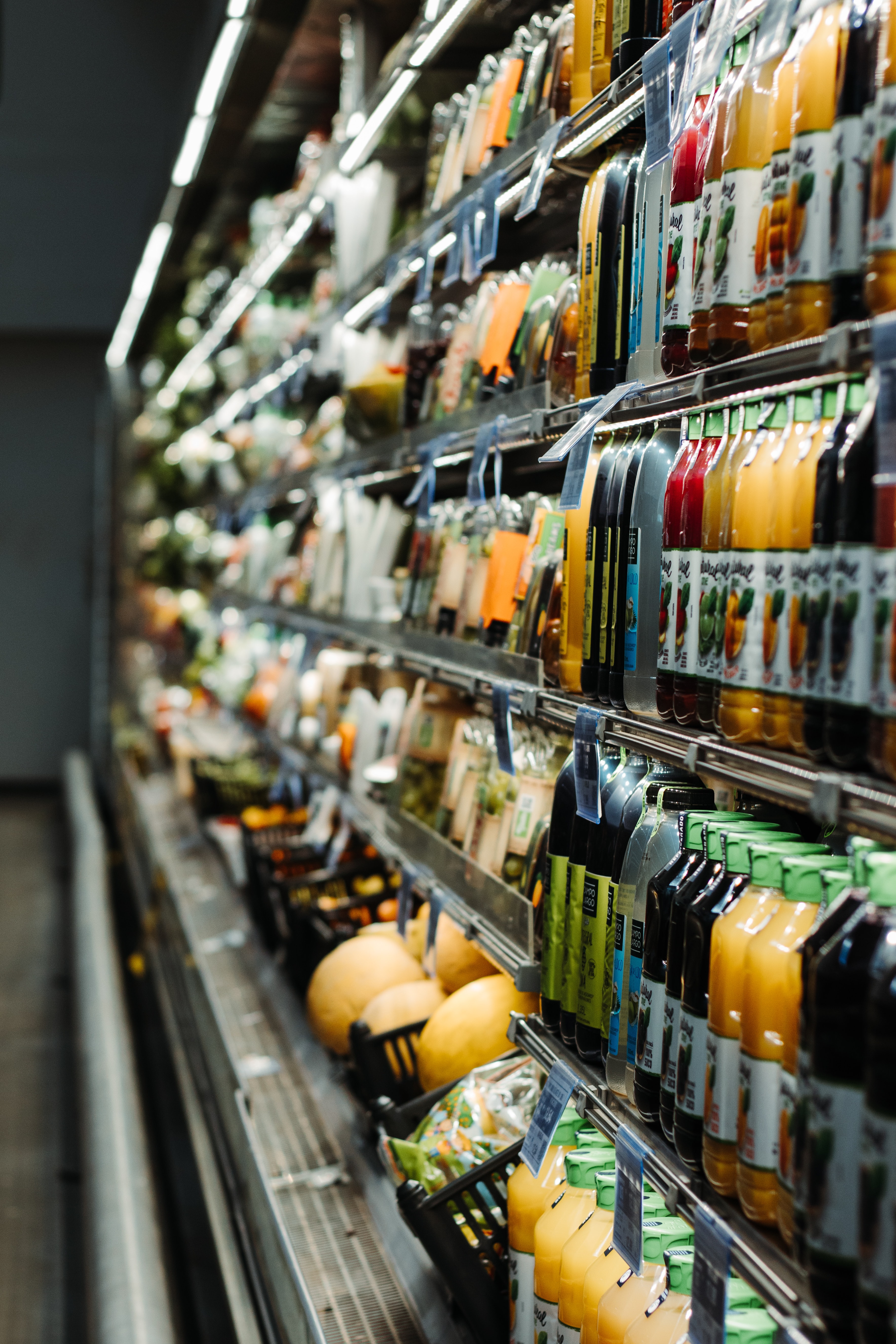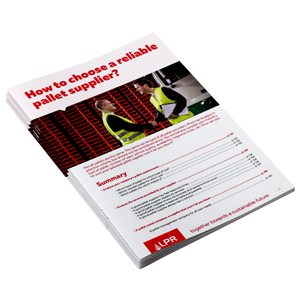The past few years have been particularly challenging for the retail supply chain, worldwide.
In response to the reduction of consumers' purchasing power, the prevalence of the Internet in our daily lives and the need to move toward more environmentally-friendly practices, retail supply chain stakeholders have had to innovate.
The goal is simple: Build tomorrow’s supply chain. A digital supply chain that is more efficient, less expensive, and more sustainable.
In this article, discover the 5 major trends shaking up retail in 2023, and how retailers are responding.
Menu:
1 | Value is at the centre of priorities
2 | Efficiency is at the heart of the retail supply chain
3 | The acceleration of online commerce
4 | Challenges related to sustainable development
5 | How LPR helps retailers meet these challenges?
1. Value is at the centre of priorities
As some countries prepare to endure a recession in 2023, inflation continues to rise. By October 2022, inflation averages 11.5% across the European Union.
Rising prices have a significant impact on consumers, which ripples through the retail supply chain.
In the face of this, the influence of discounters such as Aldi and Lidl (which are known for their low prices) continues to grow. Other retailers must therefore redouble their efforts to win over and support consumers.
A good example of this is Leclerc. Leclerc is committed to making sure that its stores are the cheapest in their areas of operation (France, Spain, Poland and Slovenia).
In order to succeed at this, the store uses two main levers:
-
It compares prices with nearby competitors: Leclerc wants to ensure that it is always the cheapest locally in order to be able to compete with other brands present in its catchment area.
-
It sets up promotional zones that have a high impact on everyday products to attract more customers (especially through its low-priced private labels)
This constant focus on the value of its products has enabled Leclerc to position itself amongst Europe's biggest retailers.
2. Efficiency is at the heart of the retail supply chain
To fight the threat of the discounters, and rising CODB (cost of doing business), traditional retail players must also (and especially) work on their supply chain efficiency.
For example, they can work on:
-
The assortment of goods offered for sale,
-
Partnerships with new brands/stores,
-
The physical appearance of their stores, making them more practical or pleasant.
Intermarché chose to bet on customer experience in its stores rather than on low prices for its growth strategy. The supermarket chain works with many private brands and has a high-end positioning, with prices often higher than those of its competitors.
Nevertheless, customer experience is its primary concern:
-
The concept of service is ubiquitous, and the chain is particularly well known for its traditional meat and cheese counters.
-
The stores are spacious, to allow shoppers to easily navigate between the aisles.
-
Every zone has been carefully thought out to create a feeling of well-being with customers. This is especially true of their fruit and vegetable department, which is designed like a market.
Intermarché decided to focus on the customer experience in order to win their loyalty and get them coming back.
But will that be enough to satisfy many consumers, whose situation is becoming increasingly precarious?
3. The acceleration of e-commerce
In the wake of the COVID-19 pandemic, a third trend is emerging: an acceleration of online sales.
However, not all distributors are equal in their ability to digitally transform their sales and distribution processes and significant differences can be seen between retailers.
First of all, is it necessary to sell food products online to succeed?
Contrary to what some people might think, Lidl, the current largest retailer in Europe, has no plans in this area.
The retailer prefers to concentrate on its physical stores and online sales of non-food items.
It's surprising that a distributor would make such a choice, considering that a growing number of purchases of food products are made online each year.
While many businesses were caught off guard by the outbreak of swine flu, UK supermarket chain Tesco was quick to respond.
Thanks to the many shipping options and its efficient supply chain, the retailer has been able to take market share from competitors in the UK and Ireland. By 2026, the retailer plans to make more than 11% of its sales online.

4. Challenges related to sustainable development
Although sustainable development affects all sectors, it poses a special challenge to the retail industry.
As a result, retailers around the world are facing a wide range of challenges such as:
-
Reducing greenhouse gas emissions,
-
Switching to reusable packaging to promote environmental responsibility,
-
Waste reduction,
-
The reduction of drinking water consumption.
The European supermarket industry appears to be taking sustainability seriously, as 8 of the 10 largest supermarket chains are actively pursuing sustainable practices.
-
Lidl: Lidl has made six commitments relating to environmental issues: respecting biodiversity, protecting the climate, conserving natural resources, conducting fair trade business practices, promoting health for all people, and engaging in dialogue with consumers.
-
Edeka: Edeka is one of Germany's biggest retailers, and ranks 4th amongst the largest European retailers. The company has demonstrated an interest in the future by supporting more and more projects that are essential, such as: sustainable supply, social engagement, development of greener and environmentally friendly products, and the development of its employees.
-
Mercadona: The Spanish firm has recently implemented its “6.25 Strategy for Sustainable Development”. The company’s entire e-supply chain now runs on renewable energy produced by solar panels. It has also taken steps to improve the thermal insulation of its refrigerated warehouses. It is also one of the first companies to introduce a new energy-efficient store format that uses less energy and is more environmentally friendly.

5. How LPR helps retailers meet these challenges?
LPR - La Palette Rouge pallet pooling service allows companies to reduce their costs, digitise their supply chains and reduce their carbon footprint.
In fact, the rental-management of pallets has a number of advantages:
Pallet pooling saves costs
Pooling provides companies with an efficient way to purchase, store and maintain their pallet supply.
Transport pallets are an expensive investment for distributors: they are expensive to purchase, need to be stored, and require maintenance over their lifespan.
By entrusting the management of its pallet pool to LPR - La Palette Rouge, distributors can free up their resources to focus on core activities.
LPR - La Palette Rouge takes care of every aspect of the pallets life cycle: from delivering pallets to logistics centers, to collecting them from distribution centers, and repairing them when necessary.
Pallet pooling is an ecological solution
When retailers choose pallet pooling, they are taking a step toward a circular economy. The rental and management of pallets can extend the life of those pallets, thus reducing the number of new pallets produced (for each new pallet released into circulation, 7kg of CO2 is emitted into the atmosphere).
By pooling, we've helped remove hundreds of tonnes of CO2 from the atmosphere each year.
In addition, when retailers choose a supplier like LPR - La Palette Rouge, they know that the wood in their pallets is sustainably sourced thanks to the company’s PEFC certification.
LPR helps you digitise your supply chain
LPR - La Palette Rouge's MyLPR retail application allows distributors to track their pallet flows at all times. They can place orders online and be notified immediately if a delay occurs on their order. The application gives access to an intuitive interface and a dashboard that provides valuable insight into the management of pallets.
Conclusion
In conclusion, the retail supply-chain faces many challenges in 2023.
While cost reduction, efficiency-seeking, online commerce acceleration, and climate change awareness are important to their future success, retailers sometimes have to make painful choices that could impact their future.
Despite this, there is general agreement among market participants regarding the need to build a more sustainable supply chain.
Do you want to help build a sustainable future with us?
Choose LPR’s pallet pooling solution to transport your goods, ensure proper functionality of your supply chain, and put sustainability at the heart of your operation. Contact us for more information !



